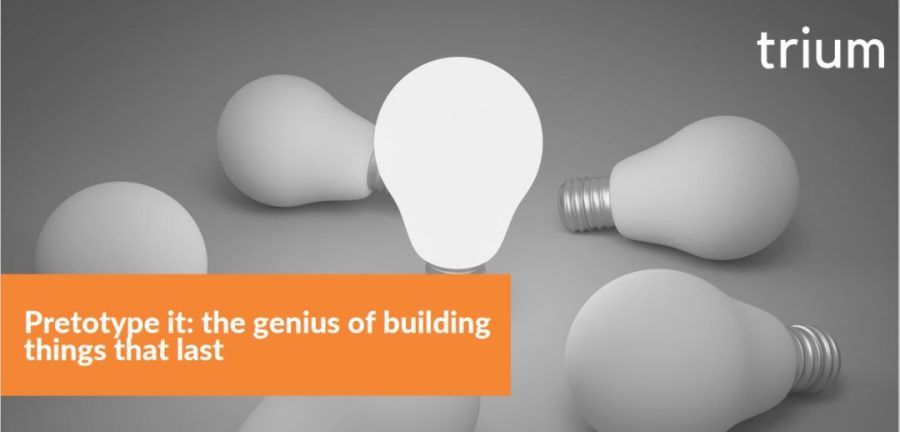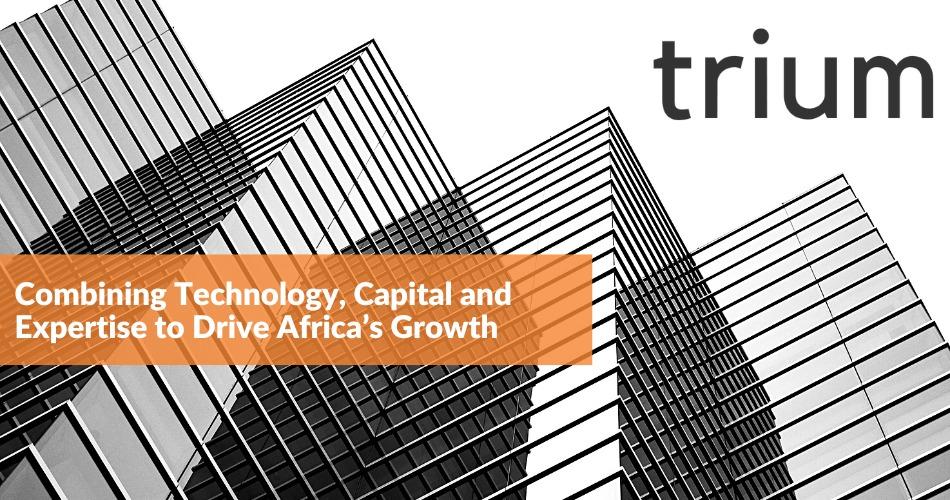The increasing demand for Africa’s and Nigeria’s talents, specifically, poses a great opportunity for the evolution of venture capital funding to venture building. Venture building is an innovative evolution of venture capital funding. Traditionally, venture capital is simply provided to develop a business concept or start-up idea. A venture builder, on the other hand, invests its resources, infrastructure, networks, experience, and capital to equip founding teams and take their vision from idea to reality – and then hold such investments for cashflows or exit.
Since venture building requires far less capital upfront “the concept is ideally suited to leveraging the huge tech start-up opportunity in Africa’s innovative, yet capital scarce, frontier and emerging markets”, says Adebayo Adewolu, Acting CEO of Trium Limited. Venture building also “presents significantly less risk – both for investors as well as for the start-ups themselves,” adds Adewolu.
Trium, a SEC-registered Venture Capital Fund Manager, and leading digital venture builder, was built on a vision to seek out and solve large challenges in Africa’s emerging and frontier markets, leveraging the transformational power of tech backed by smart capital and expertise. The venture building model provides experienced business builders to work alongside each start-up’s founding entrepreneurs, “managing the nitty-gritty of operations, systems, legal, human resources, and compliance,” says Adewolu. This frees entrepreneurs from having to deal with what they are not good at, trained to do, or do not have the resources to manage.
With the venture builder managing the basics and the business, “entrepreneurs are free to maximize their innovative value to disrupt and create – while experienced business builders, supported by established administrative and finance networks, build and scale winning business operations,” explains Adewolu. In addition to requiring less capital upfront and guaranteeing higher rates of start- up success, the venture building model also “sees concepts come to market and reach maturity quicker while achieving the scale – and value – required for cash generative businesses,” adds Adewolu.
Trium, for example, as part of the larger ecosystem, is able to draw on a broad range of experienced investment, capital, asset, risk, and insurance managers – in addition to seasoned business builders backed by world-class legal and compliance teams. “Overnight home-based tech concepts are suddenly empowered with the resources and expertise of a world-class global financial services business,” says Adewolu.
The growth implications of applying this kind of advantage to African start-ups are enormous, especially as they grow into viable national, regional, and global tech champions. In return for providing start-ups with such a huge advantage, founding teams give up a bigger share of the ventures. As such, investors and the founding teams are aligned on what each party brings to the table and can jointly achieve higher equity stakes – and earnings – as start-ups grow. This alignment also “helps both parties focus on joint capabilities that support the generation of higher returns for the ventures – over a comparatively shorter period,” he adds.
To date, Trium’s venture-building successes include supporting a payments startup – from concept to approval-in-principle, and now, a full license in just 18 months. This innovative payment platform business is already operating in Nigeria, and currently eyeing cross- border expansion. Trium is also currently assisting to build a working capital financing start-up, launching in Nigeria in the fourth quarter of 2022. The platform solves SME liquidity challenges by:
- Creating a virtual market for corporate invoices.
- Suppliers of large corporates, who typically take 30 to 60 days to pay, list their outstanding invoices on the platform along with proof of authenticity and commitment to paying.
- Licensed third-party financiers then bid to provide immediate liquidity to the invoice holders at a nominal fee.
The ingenious concept is solving the trust challenge in Africa’s emerging market supply chain. “We expect that rolled out across all 19 target markets, this transformational venture build will remarkably impact the financial health and agility of African SMEs”, says Adewolu.
While Trium is currently funded by a significant family office, the venture builder is also creating a funding club. This is expected to widen the circle of risk-management venture opportunities for African capital. Trium’s immediate call is for African businesses to “bring us their biggest problems and challenges and let us unlock the power of technology and capital to solve for Africa’s future growth,” concludes Adewolu.
We believe the future rests in technologies, which is why we are excited to play our role in building, investing, and nurturing promising enterprises with the ability to improve the lives and experiences of humanity through technology.
Find out more about us here, you can also connect with us on Medium, LinkedIn and on Twitter.





















